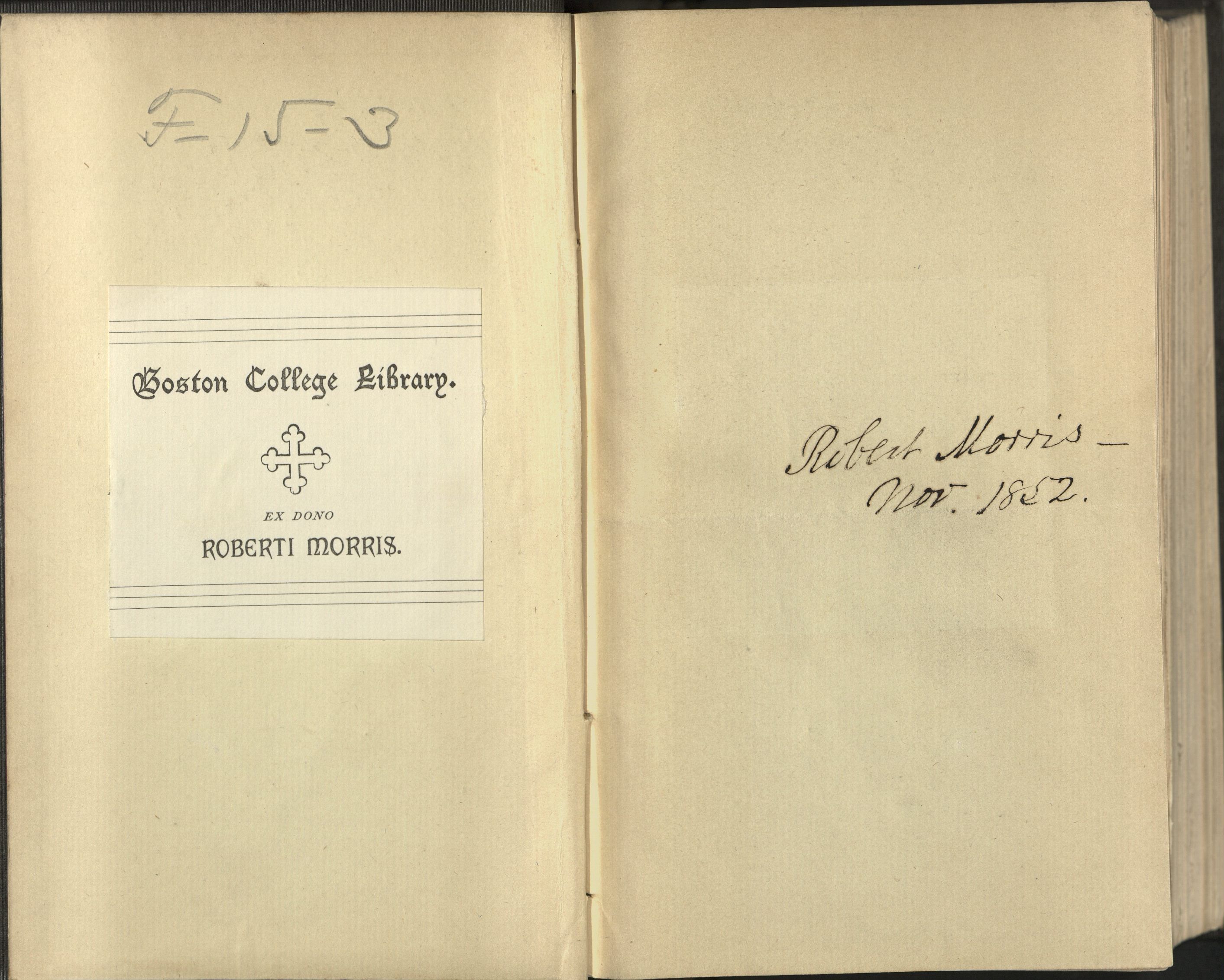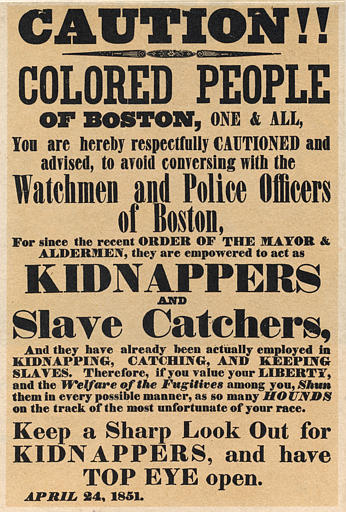|
Robert Morris (lawyer)
Robert Morris (June 8, 1823 – December 12, 1882) was one of the first African-American attorneys in the United States, and was called "the first really successful colored lawyer in America." Biography Early life Morris was born on June 8, 1823 in Salem, Massachusetts. At the age of 15, Morris went to work as a household servant for the abolitionist lawyer, Ellis Gray Loring. When Loring's regular copyist, a white youth, neglected his duties, Morris took over for him. Impressed with Morris's intellect, Loring tutored him in the law, and in 1847 presented him for admission to the Massachusetts bar. Attorney After his admission to the bar in 1847, Morris may have been the first black male lawyer to file a lawsuit in the U.S. He was also the first black lawyer to win a lawsuit. According to some sources, Morris and Macon Bolling Allen opened America's first black law office in Boston, but the authors of ''Sarah's Long Walk'' say there is "no direct knowledge that lle ... [...More Info...] [...Related Items...] OR: [Wikipedia] [Google] [Baidu] |
Salem, Massachusetts
Salem ( ) is a historic coastal city in Essex County, Massachusetts, located on the North Shore of Greater Boston. Continuous settlement by Europeans began in 1626 with English colonists. Salem would become one of the most significant seaports trading commodities in early American history. It is a suburb of Boston. Today Salem is a residential and tourist area that is home to the House of Seven Gables, Salem State University, Pioneer Village, the Salem Maritime National Historic Site, Salem Willows Park, and the Peabody Essex Museum. It features historic residential neighborhoods in the Federal Street District and the Charter Street Historic District.Peabody Essex announces $650 million campaign WickedLocal.com, November 14, 2011 [...More Info...] [...Related Items...] OR: [Wikipedia] [Google] [Baidu] |
Anthony Burns
Anthony Burns (May 31, 1834 – July 17, 1862) was an African-American man who escaped from slavery in Virginia in 1854. His capture and trial in Boston, and transport back to Virginia, generated wide-scale public outrage in the North and increased support for abolition. Burns was born enslaved in Stafford County, Virginia. As a young man, he became a Baptist and a "slave preacher" at the Falmouth Union Church in Falmouth, Virginia. He was frequently hired out by his master and learned to read and write in his various assignments. In 1853, he escaped from slavery and reached the free state of Massachusetts. He started working in Boston. The following year, he was captured under the Fugitive Slave Act of 1850 and tried in court in Boston. The Fugitive Slave Act was despised and fiercely resisted in Boston, and Burns's case attracted national publicity, including large demonstrations, protests, attacks, and violence. Federal troops were used in the city to ensure Burns was ... [...More Info...] [...Related Items...] OR: [Wikipedia] [Google] [Baidu] |
Boston Vigilance Committee
The Boston Vigilance Committee (1841–1861) was an abolitionist organization formed in Boston, Massachusetts, to protect escaped slaves from being kidnapped and returned to slavery in the South. The Committee aided hundreds of escapees, most of whom arrived as stowaways on coastal trading vessels and stayed a short time before moving on to Canada or England. Notably, members of the Committee provided legal and other aid to George Latimer, Ellen and William Craft, Shadrach Minkins, Thomas Sims, and Anthony Burns. Members coordinated with donors and Underground Railroad conductors to provide escapees with funds, shelter, medical attention, legal counsel, transportation, and sometimes weapons. They kept an eye out for slave catchers, and spread the word when any came to town. Some members took part in violent rescue efforts. History Founding (1841) The Boston Vigilance Committee was formed on June 4, 1841, in response to a public call issued by Charles Turner Torrey and s ... [...More Info...] [...Related Items...] OR: [Wikipedia] [Google] [Baidu] |
Lewis Hayden
Lewis Hayden (December 2, 1811 – April 7, 1889) escaped slavery in Kentucky with his family and escaped to Canada. He established a school for African Americans before moving to Boston, Massachusetts to aid in the abolition movement. There he became an abolitionist, lecturer, businessman, and politician. Before the American Civil War, he and his wife Harriet Hayden aided numerous fugitive slaves on the Underground Railroad, often sheltering them at their house. Hayden was elected in 1873 as a Republican representative from Boston to the Massachusetts state legislature. He helped found numerous black lodges of Freemasons. Located on the north side of Beacon Hill, the Lewis and Harriet Hayden House has been designated a National Historic Site on the Black Heritage Trail in Boston. Biography Early life Lewis Hayden was born into slavery in Lexington, Kentucky, in 1811, as one of a family of 25. His mother was of mixed race, including African, European, and Native American a ... [...More Info...] [...Related Items...] OR: [Wikipedia] [Google] [Baidu] |
Edward G
Edward is an English given name. It is derived from the Anglo-Saxon name ''Ēadweard'', composed of the elements '' ēad'' "wealth, fortune; prosperous" and '' weard'' "guardian, protector”. History The name Edward was very popular in Anglo-Saxon England, but the rule of the Norman and Plantagenet dynasties had effectively ended its use amongst the upper classes. The popularity of the name was revived when Henry III named his firstborn son, the future Edward I, as part of his efforts to promote a cult around Edward the Confessor, for whom Henry had a deep admiration. Variant forms The name has been adopted in the Iberian peninsula since the 15th century, due to Edward, King of Portugal, whose mother was English. The Spanish/Portuguese forms of the name are Eduardo and Duarte. Other variant forms include French Édouard, Italian Edoardo and Odoardo, German, Dutch, Czech and Romanian Eduard and Scandinavian Edvard. Short forms include Ed, Eddy, Eddie, Ted, Teddy and Ned. ... [...More Info...] [...Related Items...] OR: [Wikipedia] [Google] [Baidu] |
Habeas Corpus
''Habeas corpus'' (; from Medieval Latin, ) is a recourse in law through which a person can report an unlawful detention or imprisonment to a court and request that the court order the custodian of the person, usually a prison official, to bring the prisoner to court, to determine whether the detention is lawful. The writ of ''habeas corpus'' was described in the eighteenth century by William Blackstone as a "great and efficacious writ in all manner of illegal confinement". It is a summons with the force of a court order; it is addressed to the custodian (a prison official, for example) and demands that a prisoner be brought before the court, and that the custodian present proof of authority, allowing the court to determine whether the custodian has lawful authority to detain the prisoner. If the custodian is acting beyond their authority, then the prisoner must be released. Any prisoner, or another person acting on their behalf, may petition the court, or a judge, for ... [...More Info...] [...Related Items...] OR: [Wikipedia] [Google] [Baidu] |
Fugitive Slave
In the United States, fugitive slaves or runaway slaves were terms used in the 18th and 19th century to describe people who fled slavery. The term also refers to the federal Fugitive Slave Acts of 1793 and 1850. Such people are also called freedom seekers to avoid implying that the slave had committed a crime and that the slaveholder was the injured party. Generally, they tried to reach states or territories where slavery was banned, including Canada, or, until 1821, Spanish Florida. Most slave law tried to control slave travel by requiring them to carry official passes if traveling without a master. Passage of the Fugitive Slave Act of 1850 increased penalties against runaway slaves and those who aided them. Because of this, some freedom seekers left the United States altogether, traveling to Canada or Mexico. Approximately 100,000 American slaves escaped to freedom. Laws Beginning in 1643, the slave laws were enacted in Colonial America, initially among the New England Con ... [...More Info...] [...Related Items...] OR: [Wikipedia] [Google] [Baidu] |
Shadrach Minkins
Shadrach Minkins (c. 1814 – December 13, 1875) was an African-American fugitive slave from Virginia who escaped in 1850 and reached Boston. He also used the pseudonyms Frederick Wilkins and Frederick Jenkins.Collison (1998), p. 1. He is known for being freed from a courtroom in Boston after being captured by United States marshals under the Fugitive Slave Act of 1850. Members of the Boston Vigilance Committee freed and hid him, helping him get to Canada via the Underground Railroad. Minkins settled in Montreal, where he raised a family. Two men were prosecuted in Boston for helping free him, but they were acquitted by the jury. Early life Minkins was born into slavery about 1817 in Norfolk, Virginia. Escape and capture He escaped from slavery at age 33 in 1850 and reached Boston, Massachusetts, where he became a waiter. Later that year, Congress enacted the Fugitive Slave Act, which allowed federal agents to seize escaped slaves living in free states and return them to thei ... [...More Info...] [...Related Items...] OR: [Wikipedia] [Google] [Baidu] |
Upper Canada
The Province of Upper Canada (french: link=no, province du Haut-Canada) was a part of British Canada established in 1791 by the Kingdom of Great Britain, to govern the central third of the lands in British North America, formerly part of the Province of Quebec since 1763. Upper Canada included all of modern-day Southern Ontario and all those areas of Northern Ontario in the which had formed part of New France, essentially the watersheds of the Ottawa River or Lakes Huron and Superior, excluding any lands within the watershed of Hudson Bay. The "upper" prefix in the name reflects its geographic position along the Great Lakes, mostly above the headwaters of the Saint Lawrence River, contrasted with Lower Canada (present-day Quebec) to the northeast. Upper Canada was the primary destination of Loyalist refugees and settlers from the United States after the American Revolution, who often were granted land to settle in Upper Canada. Already populated by Indigenous peoples, land ... [...More Info...] [...Related Items...] OR: [Wikipedia] [Google] [Baidu] |
Preacher
A preacher is a person who delivers sermons or homilies on religious topics to an assembly of people. Less common are preachers who preach on the street, or those whose message is not necessarily religious, but who preach components such as a moral or social worldview or philosophy. History Preachers are common throughout most cultures. They can take the form of a Christian minister on a Sunday morning, or an Islamic Imam. A Muslim preacher in general is referred to as a '' dā‘ī'', while one giving sermons on a Friday afternoon is called a '' khatib''. The sermon or homily has been an important part of Christian services since Early Christianity, and remains prominent in both Roman Catholicism and Protestantism. Lay preachers sometimes figure in these traditions of worship, for example the Methodist local preachers, but in general preaching has usually been a function of the clergy. The Dominican Order is officially known as the ''Order of Preachers'' (''Ordo Praedica ... [...More Info...] [...Related Items...] OR: [Wikipedia] [Google] [Baidu] |








.jpg)